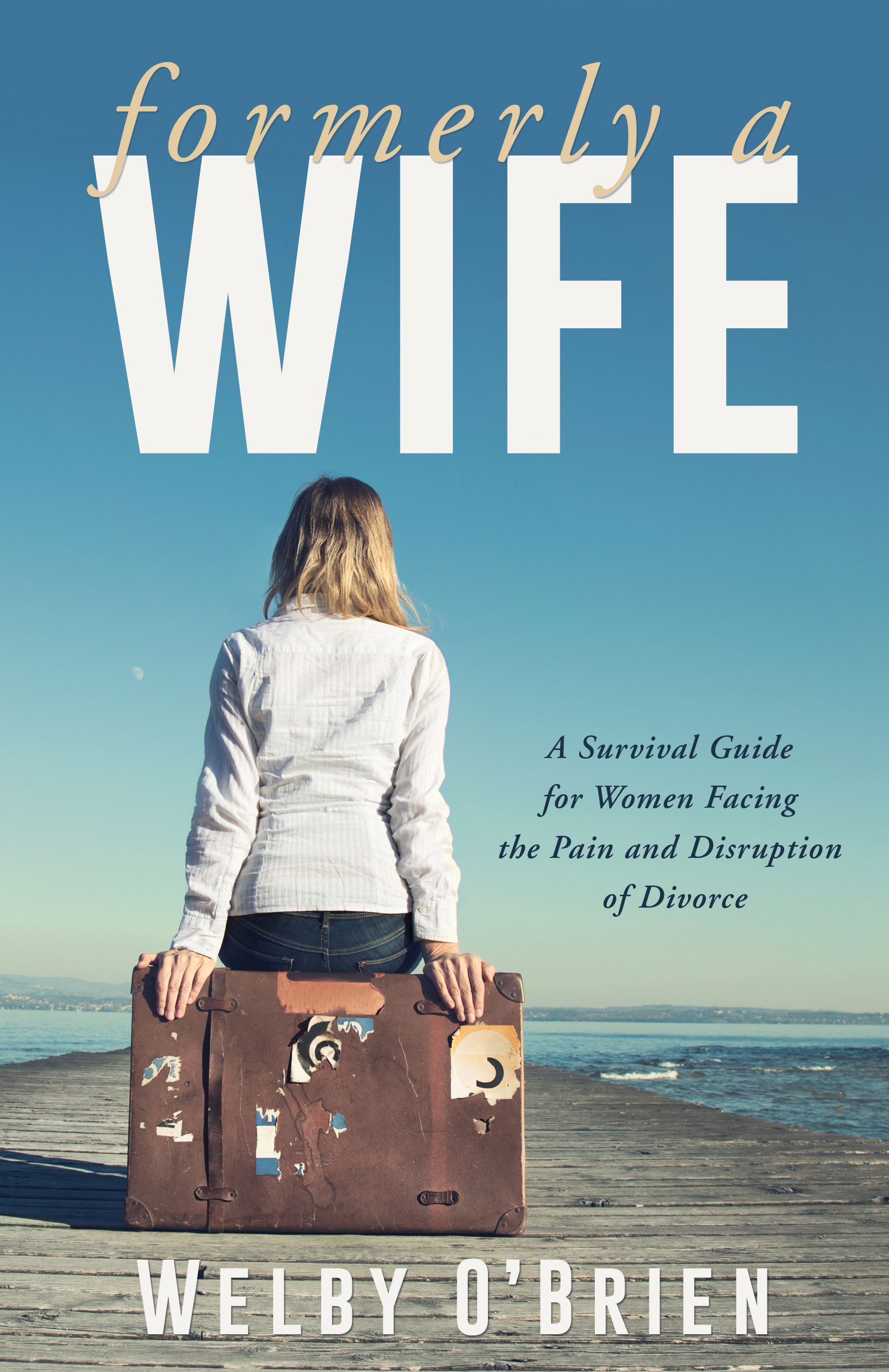
This Survival Checklist from the book Formerly a Wife is in the context of divorce recovery, however it is applicable to anyone going through a time of stress, grief, or loss.
In the upward spiral of the growth process, I have found that I do best when I’ve taken care of myself. I’ve also learned that if I don’t take care of myself, I can’t rely on any other human to do it. The following list of 15 things have become part of my life and are in place both for daily maintenance and for unexpected bumps in the road.
Photo Credit: Thinkstock/demaerre

1. Saturate yourself with Scripture.
Everybody is at a different level in his or her walk with the Lord. In my times of deep pain, I soaked up Scripture and leaned on the promises of comfort throughout the day. Passages I’d known for years suddenly took on a deep reality. When verses met my needs at certain times, I wrote them on cards and posted them on the refrigerator and other places to remind me to refocus. The more my mind was on the Lord and His eternal perspective, the easier it was to go on. For some humanly unexplainable reason, the Word of God provides comfort and power when we choose to fill our crumbling, aching soul with it.
Psalm 119:25, 71, 116, 144, 165; 2 Timothy 3:15-17
Photo Credit: Thinkstock/Imabase

2. Pour out your heart to God.
Regardless of the need I am feeling, I try to relate that need to an attribute of God.
- When I feel weak, I remember He is all-powerful. I tell Him of my failing spirit and beg Him for strength.
- When I feel like a helpless little girl, I come to Him as my daddy, climbing into His lap as I pour out my heart and let the tears flow. I cry out for His tenderness, love and comfort.
- When I am consumed by hatred and anger and want to strike out in revenge, I come to Him. I remember God is not only just but also patient.
Sometimes I am angry at God Himself for allowing this unfairness. I remember God is forgiving. I can always unload, always cry out and never have to pretend. He hears. He cares.
Psalm 143:5, 8; Psalm 145:14-21; Philippians 4:6-7; 1 Thessalonians 5:17; 1 Peter 5:7
Photo Credit: Thinkstock/EnterlineDesignServicesLLC

3. Feel the pain.
This is not a time to ignore feelings. As humans, our natural instinct is to avoid pain or stop it as soon as possible. Emotional pain, like physical pain, is an indicator of a wound or illness that needs attention.
Denial is a term used to describe how we try to cover up our unwanted feelings with something that distracts or brings temporary pleasure. I have had to retrain myself when I encounter pain to pause and consciously urge myself to be aware of it. To let it hurt. To not turn on the TV or start eating. The healing begins with the acknowledgement of pain. It continues as I provide healthy outlets for the feelings I consciously process (talking, praying, writing, crying, running, etc.). Pruning my bushes was one of my quickest, most satisfying outlets for anger. (The neighbors could always tell how things were going by looking at my yard. It’s amazing that there’s anything living left standing!)
Allow yourself the freedom to acknowledge, identify, feel, and accept each feeling, and from there decide the healthiest way to deal with it.
Psalm 69:16-20; 29-30; Psalm 71:14-21; Romans 8:26-27; Hebrews 4:15
Photo Credit: Unsplash

4. Let yourself cry.
If I had a dollar for each cupful of tears I shed in the last two years, I could put a dent in the federal deficit. I used to try to save my tears in order to release them when I was by myself, but that didn’t work for long. I cried in the car, on the telephone, in the grocery store, at the gym, and always at church. Some days I knew I needed to cry and couldn’t. Then something triggered the release, a weight was lifted, and the peace of exhaustion settled inside me. It’s OK to cry. It’s necessary to cry. It’s healthy to cry.
Psalm 61:1-4; Psalm 120:1; Psalm 126:5-6; Isaiah 38:14
Photo Credit: Thinkstock/grinvalds

5. Talk to someone trustworthy.
Thankfully, the Lord surrounded me with many friends, and from those I chose a select few I could trust. My mother and I have always been close, so she bore my burden as I told her everything. I have two close friends with whom I also shared many of my ups and downs. And as the circle of friends got broader, I decided who heard what. I recognized my need to talk as a cleansing process and also a decision-making process. Talking to a close friend or a professional counselor who cares is a healthy way to release your burden as well as to work through the situation at hand.
Photo Credit: Thinkstock/Wavebreakmedia

6. Laugh, giggle, play.
Thousands of years ago, the author of Proverbs wrote that a merry heart is medicinal (Proverbs 17:22). Now modern medical science is finally admitting the physical benefit of laughter, among which is the release of the tranquilizing hormones called endorphins. Laughter helps lighten the load and renew perspective. Some of my best therapy occurred when I allowed the child in me to play. Just be careful not to use laughter as a cover-up for the pain or a wall of defense to hide behind. Don’t force it, but give it opportunity. It feels so good and is one step closer to healing.
Photo Credit: Unsplash/Lesly Juarez

7. Be open to wise input.
You will find you are hungry to learn about this strange phenomenon of divorce. There will be many “whys” for which you’ll seek answers. Take advantage of this opportunity to fill your mind with godly books, online resources, and music. Like taking vitamins, this constructive input will strengthen you and equip you during this intense phase of growth.
Psalm 119:99; Proverbs 12:25; 13:20 Philippians 4:8-9; Colossians 3:16
8. Write down your feelings.
I never had the discipline or saw the value of keeping a journal until I came to this time in my life where I needed an outlet. My thoughts and feelings accumulated and intermingled during the day, so that by nighttime I needed to sort through them. As I wrote, things became clearer, and at the same time I felt relieved of the garbage that had stacked up throughout the day. The Psalms are an example to us of how a godly man used writing to pour out his heart to the Lord.
Photo Credit: Unsplash

9. Make sleep a priority.
This is essential for facing the challenges of each day, both physically and emotionally. Easier said than done when your mind and emotions are in turmoil. I finally put in a call to my doctor when I realized I couldn’t handle it on my own. He recommended some mild sleeping pills as a temporary solution. As circumstances eased and my emotions became more even keeled, I didn’t need them anymore. Whatever you find to be the healthiest way to get it, be sure to place a high priority on sleep.
Psalm 23:1-3; Matthew 11:28-30; Mark 6:31
Photo Credit: Unsplash/Ty Carlson

10. Fill your body with healthy things.
I was in such turmoil, I couldn’t eat. I also became run down, and my immune system was not able to keep up. Although I couldn’t control my circumstances, at least I could do my best to fortify the fortress. Extra B vitamins, calcium, magnesium, vitamins C, D, and E have become part of my life. In addition, I attempted to make sure each thing I ate and and drank had nutritional value.
11. Do some physical activity every day.
This is a wonderful way to get rid of pent-up anger and to release endorphins which can tremendously improve perspective. Choose an enjoyable form of exercise. If it’s not enjoyable, it will become another stress. If it is something you look forward to, it will be a treat, and you will keep at it. My two favorite outlets were walking alone with my dog and playing racquetball with my good friends.
1 Corinthians 6:19-20; 1 Timothy 4:8
Photo Credit: Unsplash

12. Be your best from the inside out.
It’s a choice of playing the role of a victim and having an extended pity party or learning to be victorious. When we take those extra steps to fix our hair and makeup, dress nicely, keep the house clean, and fulfill our responsibilities at work and home, it’s worth it. If I don’t feel good before I make these choices, I usually feel great after. It’s a full circle, originating from within by knowing and accepting who we are in God’s sight and continuing to the external manifestation of all we do. Though we may have every right to feel sorry for ourselves, we have to come to the point where we pick up and go on to be the best we can be.
Colossians 3:23; Hebrews 12:1; 1 Peter 3:3-4
Photo Credit: Thinkstock/spukkato

13. Treat yourself and take time out.
I’ve always felt guilty doing something just for myself and especially now as finances are tighter. Yet I need to remind myself that I am special, and if I don’t nurture myself, no one else will. So I’ve given myself permission to indulge occasionally: buy a flowering plant, enjoy new bubble bath, take a long nap, stop for a latte or some ice cream, buy new underwear, use the pretty dishes, or get a massage. I am also realizing the importance of time alone. Even Jesus took time out.
Luke 4:42; Luke 6:12; Luke 10:38-42
Photo Credit: Unsplash

14. Let go.
Whatever it is that is holding you back, keeping you from growing and going on with your life, let it go. For some it may be anger, bitterness, or inability to forgive. Others may be tenaciously gripping the hope that their ex-husbands will change and the marriage will be restored. It is easy to allow an obsession to cripple us and to squeeze out our remaining energy.
Letting go does not deny that the problem exists, nor does it require the particular solution we’d most like to see. It just frees us from the physical, spiritual, and emotional erosion of worry. Letting go acknowledges that the situation is out of our control and in the hands of One whose knowledge of the situation and love for me is beyond comprehension.
Deuteronomy 33:27; Isaiah 30:15; Isaiah 40; Romans 11:3 3-36; Philippians 3:12-14
Photo Credit: Unsplash/Natalie Collins

15. Don’t rush.
Our tendency as humans is to try to hurriedly get through the pain so we can resume a comfortable life. Look at this trial not as a detour or a mistake, but as the plan—His plan. God has something beautiful to do in your life through this ugly and seemingly destructive situation. Wait on Him. Trust. Expect good things. Let time work for you.
This is an adapted excerpt from Formerly a Wife: A Survival Guide for Women Facing the Pain and Disruption of Divorce. Used with permission.
 Welby O'Brien holds a master's degree in counseling from Portland State University and a teaching degree from Biola University. She has also authored Formerly a Wife and Love Our Vets: Restoring Hope for Families of Veterans with PTSD, and is a contributing author to Chicken Soup for the Soul, as well as Shepherding Women in Pain.
Welby O'Brien holds a master's degree in counseling from Portland State University and a teaching degree from Biola University. She has also authored Formerly a Wife and Love Our Vets: Restoring Hope for Families of Veterans with PTSD, and is a contributing author to Chicken Soup for the Soul, as well as Shepherding Women in Pain.
Photo Credit: Thinkstock/tommaso79
Originally published Tuesday, 11 December 2018.



